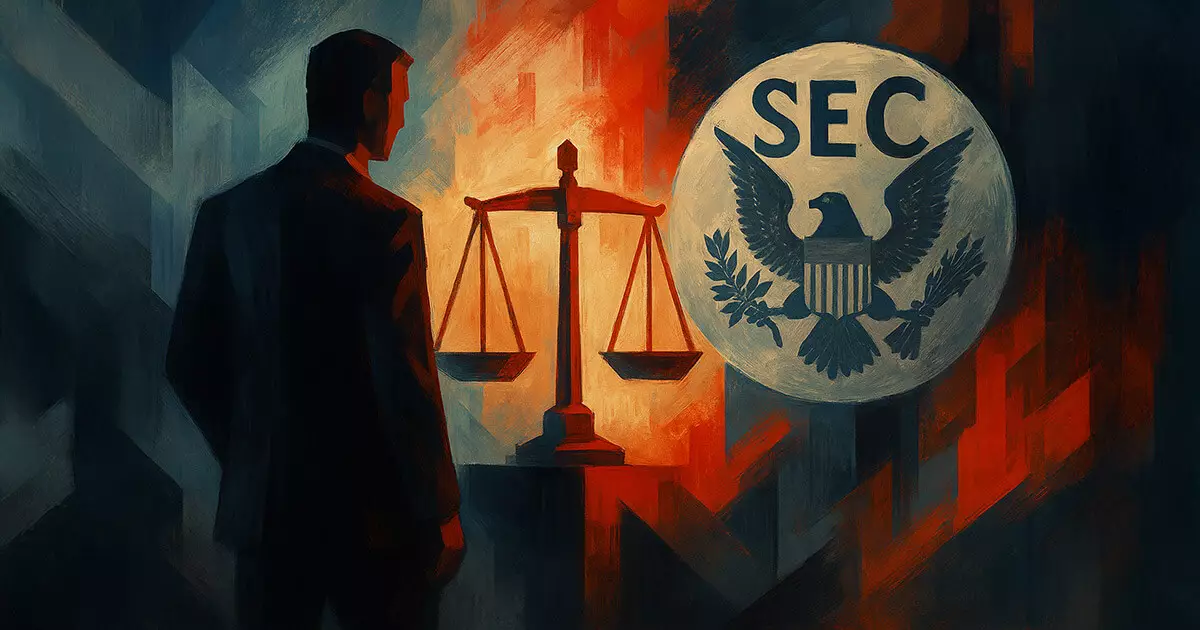In recent days, a sordid chapter in financial misconduct has surfaced, revealing the perilous depths of unchecked greed and the dangers of naivety exploited by manipulative schemes. A seemingly credible financial entity—First Liberty Building & Loan, LLC—based in Georgia, faced serious allegations of orchestrating a decade-long Ponzi scheme. This revelation underscores not only the vulnerability of retail investors desperate for high returns but also the dangerous complacency often surrounding tightly-knit political and social networks that shield illicit activities from scrutiny. While the SEC’s aggressive stance may seem like a necessary defense, it also exposes a broader failure within our regulatory landscape: the inability to preempt such frauds before they devastate lives.
The Illusion of Security and Prosperity
For over a decade, investors enticed by promises of soaring 18% returns were lured into complex financial instruments—promissory notes, loan participation agreements—that purportedly financed high-interest bridge loans to small businesses. These promises, touted through aggressive marketing, created an illusion of legitimacy. The perpetrators capitalized on the public’s desire for lucrative gains, exploiting faith in the American dream of wealth without peril. This scenario, sadly, is a familiar one. It illustrates a systemic flaw where the allure of rapid profit often overrides due diligence, creating fertile ground for fraudulent schemes to flourish. The fact that most of these “loans” were never genuinely issued or repaid reveals a cynical manipulation of trust—a betrayal of the fundamental principles of transparency and integrity that should underpin financial dealings.
The Tangible Corruption of Power and Wealth
Edwin Frost IV, the architect of this scheme, is not merely a faceless fraudster but a figure embedded in Georgia’s political and social fabric. His lavish spending—over $2.4 million in credit card payments, family vacations, rare coin acquisitions, and politically motivated donations—paints a portrait of hubris and corruption. The use of investor money for personal luxury highlights a blatant disregard for the very individuals who entrusted him with their hard-earned savings. It also points to a troubling intersection between political influence and financial fraud, where connections and donations can serve as shields for illicit conduct. This grand display of excess further erodes public trust in both financial institutions and political spheres—an erosion that is dangerous for a society that depends on ethical stewardship and accountability.
System Failures and the Need for Vigilance
The SEC’s intervention, including an emergency asset freeze and the appointment of a receiver, is a necessary but insufficient response to this crisis. Regulatory authorities are often reactive, trying to contain damage rather than preventing it. This case exemplifies the persistent challenge faced by regulators: how to identify and halt fraud before it causes irreparable harm. The widespread reliance on political and media networks by schemes like First Liberty’s underscores the importance of rigorous oversight, enhanced transparency, and investor education. Too many individuals remain susceptible because they lack the knowledge or skepticism needed to navigate the murky waters of high-yield promises. It’s imperative that regulators, policymakers, and the media work together to foster a culture where due diligence is routine and suspicion is healthy.
The Larger Threat of Affinity Fraud in Political and Community Networks
This scandal illuminates a broader trend of financial deception targeting specific communities—especially those with tight-knit social, religious, or political ties. When trust is leveraged as a tool for exploitation, the fallout extends beyond individual victims. It damages the reputation of entire communities and undermines faith in social institutions. The case of Frost and his affiliated entities, intertwined with Georgia’s conservative circles, demonstrates how political and financial worlds can dangerously collide. It’s a stark reminder that suspicion and oversight should not be sidelined in environments where loyalty and personal connections often overshadow legal and ethical standards.
Lessons Hardly Learned
Despite numerous warnings, the allure of quick riches continues to draw in new victims. The repeated occurrence of such schemes signals a failure at multiple levels—regulatory, societal, and individual. It calls for a renewed focus on safeguarding retail investors, especially those drawn into financial ventures via media influence and personal relationships. As the SEC intensifies its crackdown, society must scrutinize not just the perpetrators but also the behavioral patterns that enable such frauds to develop. Vigilance, education, and a healthy dose of skepticism remain our best defenses against the next wave of greed-motivated deception.

